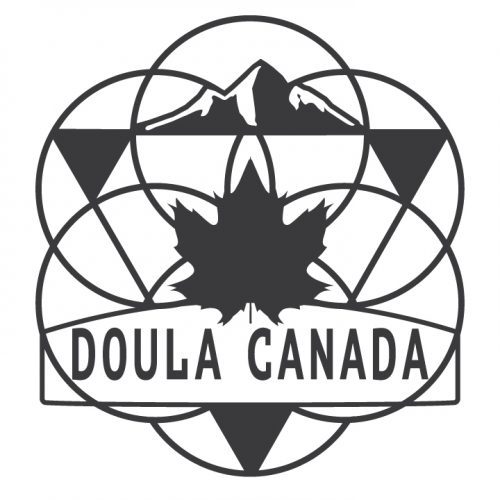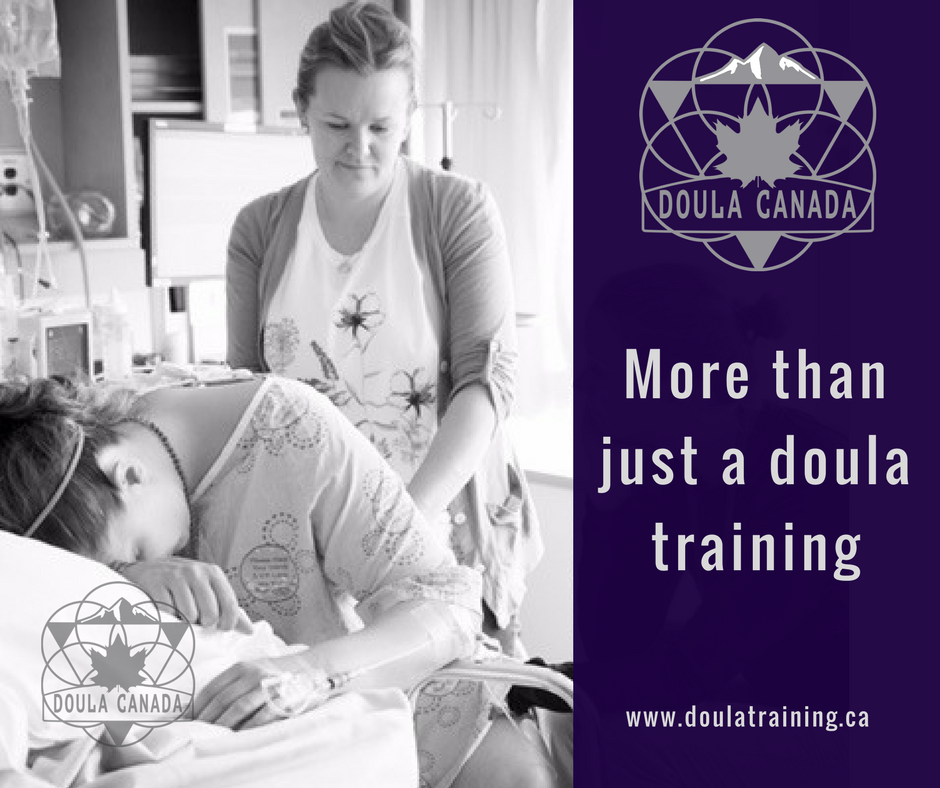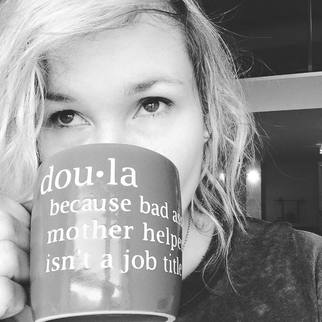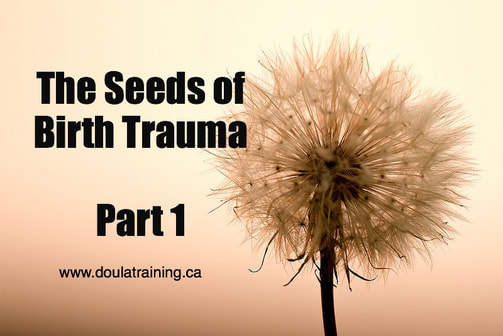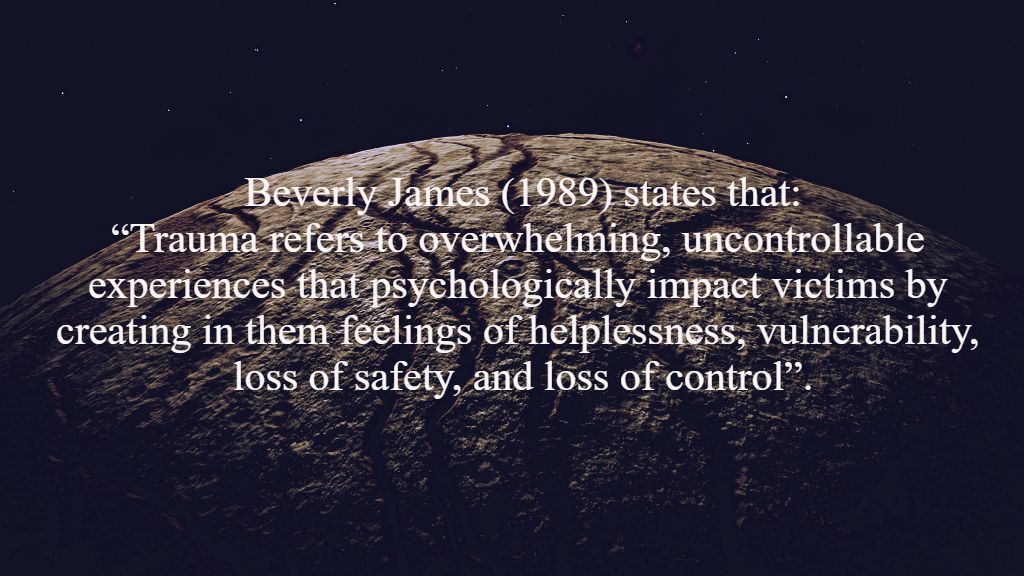[vc_row][vc_column][vc_single_image image=”73471″ img_size=”full” alignment=”center”][/vc_column][/vc_row][vc_row][vc_column][vc_column_text css=”.vc_custom_1551307504674{margin-bottom: 0px !important;}”]Guest Blogger Jillian Hand from Hand to Heart Doula Services in St.John’s NL shares with us the importance of working through shame in doula work. [/vc_column_text][/vc_column][/vc_row][vc_row][vc_column][vc_column_text css=”.vc_custom_1551308858438{margin-bottom: 0px !important;}”]When I first read Daring Greatly by Brene Brown it rocked my world. What a HUGE game changer. So, imagine my excitement when it was added to the Doula Canada required reading list. If you haven’t already had the pleasure of reading Brene Brown’s work, here’s a quick bio – Brene Brown is a researcher with a Masters and PhD in Social Work. She lives in Houston and teaches as a research professor at the University of Houston Graduate College in Social Work. She has spent over a decade studying vulnerability, courage, worthiness, and shame.
Pretty heavy topics, right? How do these pertain to doula work, you ask? Well, think about it. What is more vulnerable than being in the position of giving birth? How often do we hear our clients express sentiments like “I feel like a failure”; “I’m just not strong enough”; “I felt invisible and worthless” – these are all statements involving shame.
So, let’s dig a bit deeper into shame. Brown defines shame as “the intensely painful feeling or experience of believing that we are flawed and therefore unworthy of love and belonging” (pg 69). She goes on to explain that shame is the fear of disconnection – “it’s the fear that something we’ve done or failed to do, an ideal that we’ve not lived up to, or a goal that we’ve not accomplished makes us unworthy of connection” (pg 68). We all experience shame. It is a universal emotion and unless you lack the capacity for empathy (sociopath anyone?), you have experienced it. Brown also distinguishes between guilt and shame. The difference is best understood with the following example – Guilt = I did something bad; shame = I AM bad. See the difference?
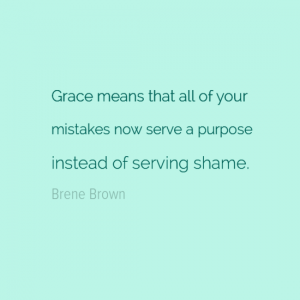 Let’s use an example we can relate to. As a doula, I’m sure we have all experienced moments of shame. If you haven’t yet, you will. Trust me. You wouldn’t be human if you didn’t. My first bout of shame as a doula was with my third client. We had discussed her wishes prior to the birth and I knew she wanted to avoid an episiotomy if at all possible. I supported her to the best of my abilities throughout her labor and when it came time to push. Then, this happened – As she was lying supine, pushing with all her might, I watched the OB pull out a pair of scissors. In my head, I knew I should say something because it was obvious at this point that he didn’t plan to. But I froze – maybe out of fear of confrontation or perhaps I was just too intimidated at that point to question the decisions of a doctor. I’m still not sure why I didn’t speak up for her. But I didn’t; and he cut her without a word.
Let’s use an example we can relate to. As a doula, I’m sure we have all experienced moments of shame. If you haven’t yet, you will. Trust me. You wouldn’t be human if you didn’t. My first bout of shame as a doula was with my third client. We had discussed her wishes prior to the birth and I knew she wanted to avoid an episiotomy if at all possible. I supported her to the best of my abilities throughout her labor and when it came time to push. Then, this happened – As she was lying supine, pushing with all her might, I watched the OB pull out a pair of scissors. In my head, I knew I should say something because it was obvious at this point that he didn’t plan to. But I froze – maybe out of fear of confrontation or perhaps I was just too intimidated at that point to question the decisions of a doctor. I’m still not sure why I didn’t speak up for her. But I didn’t; and he cut her without a word.
I had so much guilt for such a long time. I did something bad. I didn’t speak up for her. I didn’t protect her in the way I was meant to. I didn’t give her the chance to say no. I watched him violate her informed consent and did nothing. The guilt was overwhelming… But the shame.. well, the shame was excruciating. Because you see, I didn’t only think I DID something bad, I also thought I WAS bad. What a horrible doula I was! I felt unfit and unworthy of supporting women during this precious, vulnerable time. Not only did I harbor guilt about my lack of action, but I internalized it and made it about who I was as a person, as a doula. Now THAT is shame.
I didn’t talk about that experience for a long time. I never admitted that I saw those scissors. I found it hard to look my client in the eye while she explained after the fact how painful her recovery was. I avoided the second postpartum visit because I couldn’t face the shame I was experiencing… and of course, that just reinforced my shame, deepening it until I felt like I was drowning. That’s what shame does – it spirals and makes us pull away, disconnect, avoid. The more it silences us, the larger it looms. I almost gave up being a doula after that.
I didn’t quit though. I came to learn that I was actually a very good doula. I just wasn’t perfect. I learned to cut myself some slack when it comes to mistakes. I found empathy in my heart for that newbie doula who still hadn’t found her voice to speak up against obstetric violence, and who lacked the confidence to take a stand. She did the best she could in that moment. I truly believe that now.
As doulas, we will experience shame. We will also witness the shame of others – our clients, their partners, family members, our doula colleagues. Unfortunately, Brown’s research confirms that there really is no way of avoiding shame. Shame resistance is impossible. “As long as we care about connection, the fear of disconnection will always be a powerful force in our lives, and the pain caused by shame will always be real” (pg 74). What Brown did discover however is that we have the ability to build shame resilience. “Shame resilience is a strategy for protecting connection – out connection with ourselves and out connections with the people we care about” (pg 76). It’s about moving from shame to empathy, which is the real antidote for shame. It’s the “(pg 74).[/vc_column_text][/vc_column][/vc_row][vc_row][vc_column border_color=”#441f93″ blend_mode=”soft-light” css=”.vc_custom_1551308244095{background-color: #300032 !important;}”][mk_blockquote font_family=”none”]It’s the “ability to practice authenticity when we experience shame, to move through the experience without sacrificing out values, and to come out on the other side of the shame experience with more courage, compassion, and connection than we had going into it” (pg 74).[/mk_blockquote][/vc_column][/vc_row][vc_row][vc_column][vc_column_text css=”.vc_custom_1551308385042{margin-bottom: 0px !important;}”]So, how do we build our shame resilience? Brown identifies four elements, and the steps don’t always have to happen in order. They are:
Recognizing Shame and Understanding Its Triggers.
I love the description “Shame is biology and biography”. To build shame resistance, we must first be able to detect shame in our bodies. That’s the biology. Do we flush? Feel nauseous? Get headaches? What is our physical reaction? I know mine inside and out. First, I feel queasy and I get clammy. Then, my mind starts to race, and my breath quickens and a headache starts, right behind my eyes. I flush and can feel the grip of anxiety.
The biography piece refers to our ability to figure out what messages and expectations triggered it. What’s the story we are telling ourselves? Let’s take my shame story for example. The expectations I set for myself were that, as a doula, it was my sole responsibility to protect my client against unwanted interventions in any situation.
Practicing Critical Awareness.
This is where reality checking comes into play. How realistic or attainable are the messages and expectations driving your shame? Was it realistic for me to set the expectation that I alone was responsible for the actions of my client’s healthcare team? Was it attainable for me to assume that I had the power to stop unwanted intervention? I know now that I am only one person.
Reaching out.
Are you sharing your story? Empathy requires connection and if we aren’t reaching out, we aren’t connecting. WHO we choose to share our story with is vital. Are we choosing someone who has earned the right to witness our vulnerability? Are they going to hold space for us in a non-judgmental way? If not, we might want to choose someone else because those that judge us and do not have the ability to provide us with compassion and empathy will only feed our shame.
When I first shared my story, it was with another doula who I trusted wholeheartedly. She listened and validated me, and was able to tell me about her own experience with shame. I didn’t feel alone anymore, and it made me realize that we all have moments of humanness where we make mistakes.
Speaking Shame.
Finally, are you identifying shame as SHAME? Are you saying the word, out loud? It’s important that we talk about shame and ask for what we need when we feel shame. By naming it, it loses its power.
Now, when I feel shame coming on, I look it in the face. I say to myself “This is shame”. I know exactly what I need to do to work through it. I call that same friend you gets me and I say “I need help, I’m in a shame spiral”. She knows exactly what that means. We talk it out. I usually cry. I tell her I need to hear that I’m still a good doula. I need her to believe that I did the best I could. She always believes me. Always.
Working through shame takes work, and self-compassion, and most of all, empathy. Remember, you need to go I.N.T.O it.
Identify it.
Name it.
Talk about it.
Own it.
I promise you, you will make it to the other side.
Brown, brene. (2012). Daring Greatly: How the Courage to be Vulnerable Transforms the Way we Live, Love, and Parent. New York: Avery Publishing.[/vc_column_text][/vc_column][/vc_row][vc_row][vc_column][vc_column_text css=”.vc_custom_1551307936785{margin-bottom: 0px !important;}”]
 Jillian is a certified birth and postpartum doula through both Doula Training Canada and DONA International . She is one of the original founders of the Doula Collective of Newfoundland and Labrador.She is also a Certified Birthing From Within® mentor and doula and a Birthing From Within® Birth Story Listener. This training, along with a master’s degree in social work, has provided her with the necessary skills to facilitate the processing of difficult birth experiences in a way that leads to growth and wholeness. Finally, She is a birth doula trainer through Doula Training Canada, as well as the mother of two beautiful and creative children.
Jillian is a certified birth and postpartum doula through both Doula Training Canada and DONA International . She is one of the original founders of the Doula Collective of Newfoundland and Labrador.She is also a Certified Birthing From Within® mentor and doula and a Birthing From Within® Birth Story Listener. This training, along with a master’s degree in social work, has provided her with the necessary skills to facilitate the processing of difficult birth experiences in a way that leads to growth and wholeness. Finally, She is a birth doula trainer through Doula Training Canada, as well as the mother of two beautiful and creative children.
[/vc_column_text][/vc_column][/vc_row][vc_row][vc_column][vc_facebook][/vc_column][/vc_row]
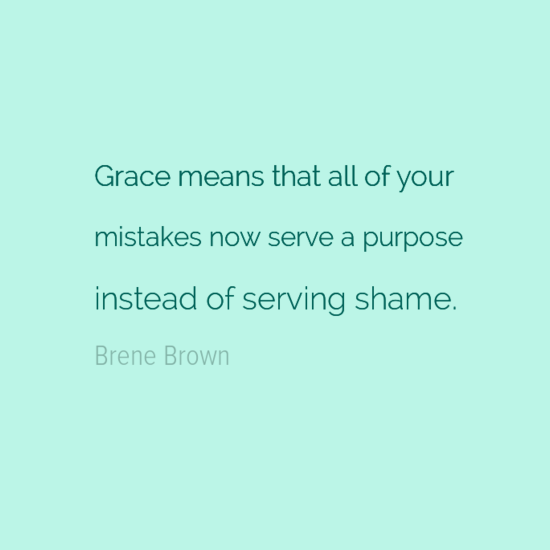
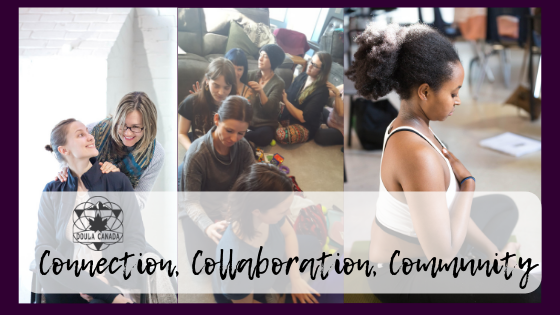

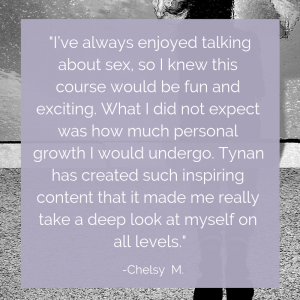 hat’s as important as knowledge, is also self-reflection. Has someone ever told you about a food they love to eat that made you want to gag? More than one of my family members hates chocolate, like, really hates it. Luckily, because most people I know love chocolate at least half as much as I do, I don’t feel ashamed for my love of chocolate when so-and-so closes their eyes and makes a gag sound. Sex is similar and in a very important way also different. Because sex is so taboo, and most of us have felt some kind of judgement or shame for some aspect of our sexuality over the course of our lifetime, it’s all the more important to check-ourselves.
hat’s as important as knowledge, is also self-reflection. Has someone ever told you about a food they love to eat that made you want to gag? More than one of my family members hates chocolate, like, really hates it. Luckily, because most people I know love chocolate at least half as much as I do, I don’t feel ashamed for my love of chocolate when so-and-so closes their eyes and makes a gag sound. Sex is similar and in a very important way also different. Because sex is so taboo, and most of us have felt some kind of judgement or shame for some aspect of our sexuality over the course of our lifetime, it’s all the more important to check-ourselves. Tynan Rhea is a settler with German and Czechoslovakian ancestry. Tynan has a private practice online and in Toronto as a counselor, aromatherapist, and doula specializing in sex, intimacy, and relationships throughout the reproductive years and founder of PostpartumSex.com. Tynan graduated from the University of Waterloo with a Joint Honours Bachelor of Arts in Psychology and Sexuality, Marriage, & Family. They received their doula training from the Revolutionary Doula Training program and their aromatherapy training with Anarres Apothecary Apprenticeship program. Tynan is currently enrolled at Yorkville University doing their Masters of Arts Counselling Psychology degree. Tynan approaches their practice from sex-positive, trauma-informed, anti-oppressive, and feminist frameworks. Find Tynan on
Tynan Rhea is a settler with German and Czechoslovakian ancestry. Tynan has a private practice online and in Toronto as a counselor, aromatherapist, and doula specializing in sex, intimacy, and relationships throughout the reproductive years and founder of PostpartumSex.com. Tynan graduated from the University of Waterloo with a Joint Honours Bachelor of Arts in Psychology and Sexuality, Marriage, & Family. They received their doula training from the Revolutionary Doula Training program and their aromatherapy training with Anarres Apothecary Apprenticeship program. Tynan is currently enrolled at Yorkville University doing their Masters of Arts Counselling Psychology degree. Tynan approaches their practice from sex-positive, trauma-informed, anti-oppressive, and feminist frameworks. Find Tynan on 





